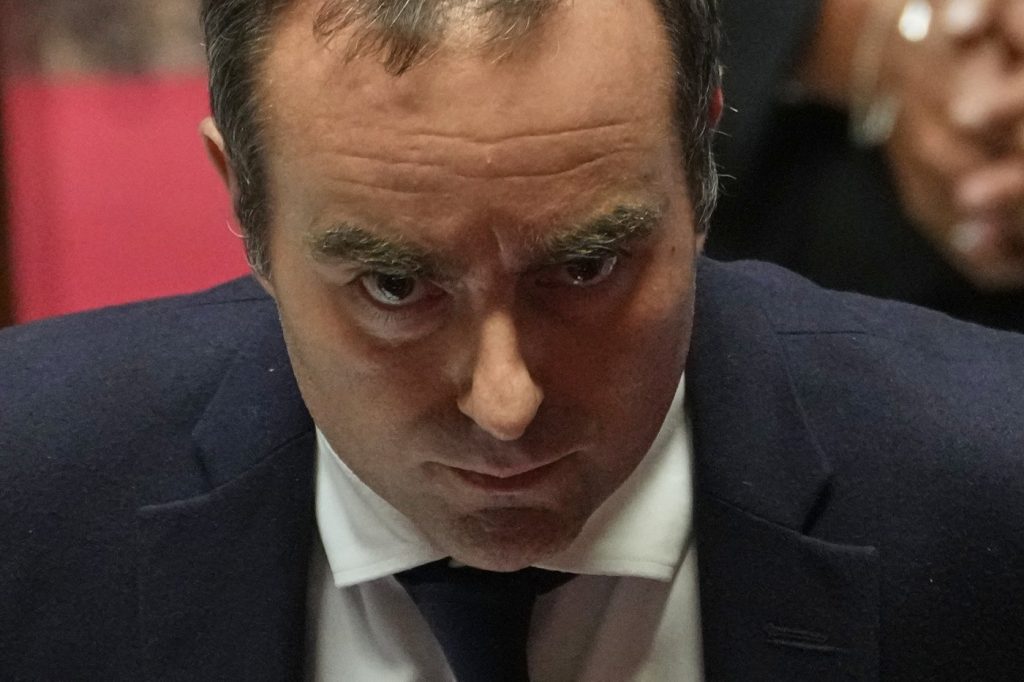PARIS (AP) - France is on the brink of a deeper political crisis as Prime Minister Sébastien Lecornu faces two no-confidence votes in Parliament on Thursday. This precarious situation may compel President Emmanuel Macron to call for snap legislative elections, a move that could have significant ramifications for the nation's governance.
The National Assembly, France's powerful yet divided lower house, will consider no-confidence motions put forth by the hard-left France Unbowed party and the far-right National Rally led by Marine Le Pen. Le Pen's party, already the largest in the National Assembly, aims to capitalize on the political instability and could make substantial gains if elections were to follow a potential dissolution of the Assembly.
If Prime Minister Lecornu manages to survive the no-confidence votes, the margin is expected to be narrow. If he fails, Macron has indicated, through government spokespersons, that he might dissolve the National Assembly instead of appointing a new Prime Minister. Notably, Lecornu had already resigned and was re-appointed by Macron just four days prior to the anticipated votes.
Should legislative elections occur following the dissolution, the outcome remains uncertain. However, the National Rally is confident that it could enhance its position, given the political landscape in the aftermath of the last dissolution in 2024.
Le Pen has been vocally advocating for fresh legislative elections, motivated by polls indicating a favorable outcome for her party. In the wake of the newly appointed Prime Minister's recent Cabinet announcement, Le Pen and her ally Eric Ciotti filed the censure motion, asserting that dissolving the National Assembly represents the most efficient and democratic solution to resolve the current political deadlock.
Conversely, the motion from the France Unbowed party suggests that Lecornu's removal could facilitate the ouster of Macron as well. The motion articulates a vision for "returning to the ballot boxes," positing the notion that Macron's presidency could be characterized as authoritarian.
To topple Lecornu, a majority of the 577 legislators in the National Assembly must vote against him. The assembly is set to convene at 9 a.m. local time (0700 GMT) on Thursday, with the France Unbowed motion being voted on first. The National Rally and France Unbowed parties alone lack the requisite number of votes to achieve the 289 needed to succeed in the no-confidence vote.
Currently, the National Rally and its allies hold 139 lawmakers, while France Unbowed comprises 71 members. If these two factions manage to unify their votes, they will require additional support from other opposition lawmakers to reach the necessary majority. A leftist coalition, including 38 Ecological lawmakers, has indicated they will also oppose Lecornu's government, while a smaller left-wing group of 17 communists is likely to follow suit.
However, even with this opposition, Lecornu's detractors may still be short of the majority needed. Support from Macron's centrist allies, as well as the Socialists and the Republicans, will be crucial to the outcome. Lecornu has recently attempted to woo the Socialists by announcing the suspension of a highly unpopular change to France's retirement age, thus sacrificing an essential element of Macron’s reform agenda in hopes of securing legislative stability.
If Lecornu survives this round of no-confidence votes, further challenges to his government are anticipated in the near future, particularly as the National Assembly engages in contentious budget negotiations. Political analysts warn that Lecornu's position remains tenuous, with the prospects for stability appearing extremely slim.










